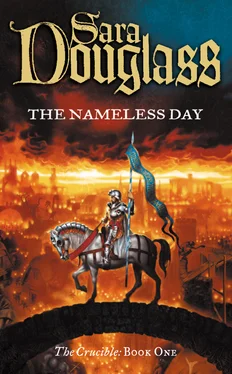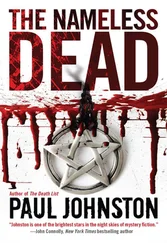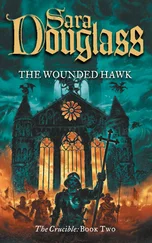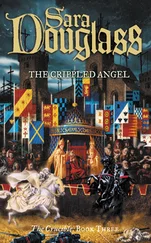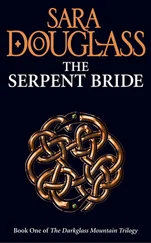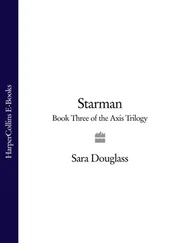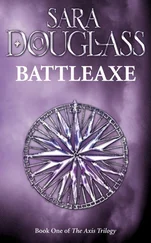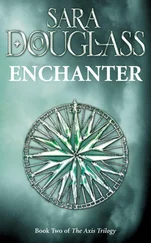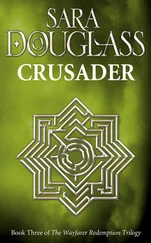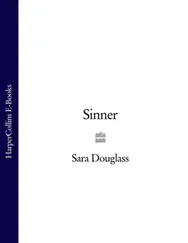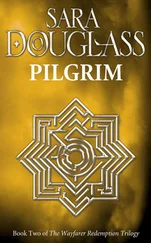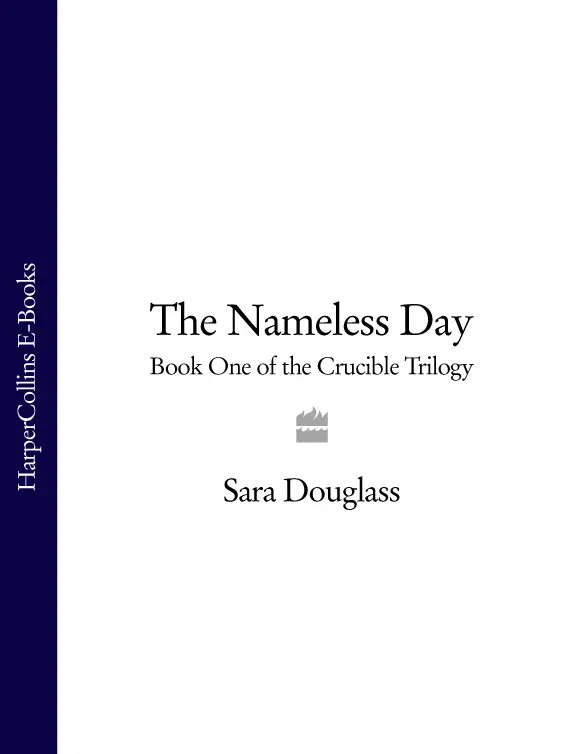
The Nameless Day
Sara Douglass
The Crucible: Book One
In memory of my most devoted fan,
MICHAEL GODWIN
10th September 1981 – 16th March 1998
Cover Page
Title Page The Nameless Day Sara Douglass The Crucible: Book One
Author’s Note
Prologue
ROME
I
II
III
IV
V
VI
VII
VIII
IX
GERMANY
I
II
III
IV
V
VI
VII
VIII
FRANCE
I
II
III
IV
V
VI
VII
VIII
IX
X
XI
XII
XIII
XIV
XV
XVI
XVII
XVIII
XIX
XX
XXI
XXII
ENGLAND
I
II
III
IV
V
VI
VII
VIII
IX
X
XI
XII
XIII
XIV
XV
XVI
XVII
XVIII
XIX
XX
XXI
XXII
XXIII
XXIV
XXV
Epilogue
Glossary
A JIGGE (FOR MARGRETT)
A JIGGE (FOR MARGRETT) (MODERNISED VERSION)
About the Author
Also by Sara Douglass
Copyright
About the Publisher
Time travel is not only theoretically possible, travel into our future has already been achieved (albeit on a tiny scale of a few seconds or minutes). Travel into our past is more problematic. How would interfering with our past affect our present? Some physicists argue that sending someone into the past creates a “parallel universe”—the mere presence of someone in a past time alters that world’s future to such an extent that a different future is necessarily created: a parallel universe (or world) to the one we live in.
The three books of “The Crucible” are set, not in the medieval Europe of our past, but in the medieval Europe of a parallel universe: the insertion of even one fictional character amongst a host of historical characters necessarily creates that parallel world. Thus, while there are many similarities between our past and the world of “The Crucible”, there are also many differences. The entire period of the Hundred Years War, for example, has been compressed so that the Battle of Poitiers is fought at a later date than in our past, and Joan of Arc appears at an earlier date.
Although some dates and “facts” have altered, the spirit of “The Crucible” remains identical to that of our medieval Europe. Something strange happened in the fourteenth century…something very, very odd. The fourteenth century was an age of unprecedented catastrophe for western Europe: widespread famine due to climate change, economic collapse, uncontrollable heresies, social upheaval, endemic war and, to compound the misery, the physical and psychological devastation of the Black Death. In all of recorded history there has never been before or since a period of such utter disaster: one half of Europe’s population died due to the effects of famine, war and the Black Death. As a result, Europeans emerged from the fourteenth century profoundly—and frighteningly—changed. Medieval Europe had been an intensely spiritual society: the salvation of the soul was paramount. Post-fourteenth century Europe abandoned spirituality for secularism, materialism and worldliness. Its peoples embraced technology and science, and developed the most aggressively invasive mentality of world history. Why this profound shift from the internal quest for spiritual salvation to a craving for world domination? Was it just the end result of over a hundred years of catastrophe…or was there another reason?
“The Crucible” presents an explanation couched in a medieval understanding of the world rather than in terms more familiar to our modern sensibilities. Medieval Europe was a world of evil incarnate, a world where demons and angels walked the same fields as men and women; a world where the armies of God and of Satan arrayed themselves for the final battle…we now live in the aftermath of that battle, but are we sure who won?
Sara Douglass
Bendigo, 2000
The Friday within the Octave of All Saints
to the Nameless Day
In the twenty-first year of the reign of Edward III
(7th November to Tuesday 23rd December 1348)
—St Angelo’s Friary, Rome—
“Brother Wynkyn? Brother Wynkyn? Sweet Jesu, Brother, you’re not going to leave us now ?”
Brother Wynkyn de Worde slapped shut the weighty manuscript book before him and turned to face Prior Bertrand. “I have no choice, Bertrand. I must leave.”
Bertrand took a deep breath. Sweet Saviour, how could he possibly dissuade Brother Wynkyn?
“My friend,” he said, earning himself a sarcastic glance from Wynkyn. “Brother Wynkyn…the pestilence rages across Christendom. If you leave the safety of Saint Angelo’s—”
“What safety? Of the seventeen brothers who prayed here five weeks ago, now there is only you and me and two others left. Besides, if I choose to hide within these ‘safe’ walls a far worse pestilence will ravage Christendom than that which currently rages. I must go. Get out of my way.”
“Brother, the roads are choked with the dying and the brigands who pick their pockets and pluck the rings from their fingers.” Prior Bertrand moderated his voice, trying to reason with the old man. Brother Wynkyn had ever been difficult. Bertrand knew that Wynkyn had even shouted down the Holy Father once, and Bertrand realised there was no circumstance in which he could hope for respect from someone who was powerful enough to cow a pope. “How can you possibly overcome all the difficulties and the dangers roaming the roads between here and Nuremberg? Stay, I beg you.”
“I would condemn the earth to a slow descent into insanity if I stayed here.” Wynkyn lowered the book—he needed both arms to lift it—and several loose pages of closely-written script into a flat-lidded oaken casket bound with brass. It was only just large enough to take the book and the pages. Once he had shut the casket, Wynkyn locked it with a key that hung from a chain on his belt.
Bertrand watched wordlessly for some minutes, and then tried again. “And if you die on the road?”
Wynkyn shot his prior an angry glance. “I will not die on the road! God and the angels protect me and my purpose.”
“As they have protected all the other innocent souls who have died in the past weeks and months? Wynkyn, nothing protects mankind against the evil of this pestilence!”
Wynkyn carefully checked the casket to ensure its security. He turned his back to Bertrand.
“Rome is dying,” Bertrand said, his voice now soft. “Corpses lie six deep in the streets, and the black, bubbling pestilence seeks new victims on every breath of wind. God has shown us the face of wrath for our sins, and the angels have fled. If you leave the friary now you will surely die.”
Still Wynkyn did not answer.
“Brother,” Bertrand said, desperation now filling his voice. “Why must you leave? What is of such importance that you must risk almost certain death?”
Wynkyn turned about and locked eyes with the prior. “Because if I don’t leave, then it is almost certain death for Christendom,” he said. “Either get out of my way, Bertrand, or aid me to carry this casket to my mule.”
Bertrand’s eyes filled with tears. He made a hopeless gesture with his hand, but Wynkyn’s gaze did not waver.
“Well?” Wynkyn said.
Читать дальше
